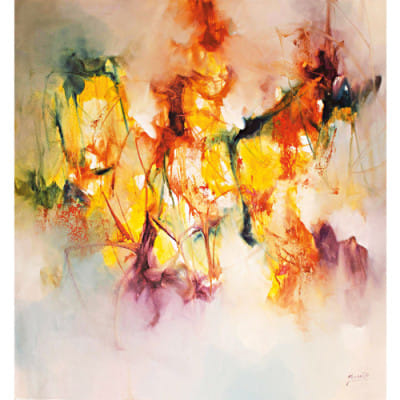Her Holud- Covered Hands

I've seen many hues of yellow. Colorful, gray, unadorned. The pristine bokul podium, the vibrant spring awash with the fragrance of yellowy brilliance, the mournful memory of my adolescent day—the wedding ceremony of "Aaj Amenar Gaye Holud," or the spring celebration in this Dhaka's concrete jungle. But where's that veritable yellowness? Many years ago, I went to visit Khala. My uneducated, unremarkable aunt who'd shared her husband with another woman. A year after her marriage, the old man died, turning Khala into an eighteen-year-old widow. Khala was crushing holud, turmeric roots on a grinding stone. The moment she heard of my arrival, she ran and cradled my face in her hands. She cried. After so many years you came to see me, my boy! Poor Khala, she fully forgot to wash her spice-adorned hands! My face was then all yellow from her holud-covered hands. The acridity made my eyes teary. In my younger days, Shefali, donning a yellow sari, took my face in her hands all the time, kissed me. But where's that passionate, holud-hued genuine love? Many years later, I went to see my Khala again. She was in bed, eyes closed, sunken deep into her head. Her paan chewing mouth still. The tip of her tongue lay touching the corner of her reddened lips. Black, stained teeth unmistakble in her wide-open mouth. Khala! I said to myself, where are your holud-covered hands now? She was quiet, in a sound sleep.
Rahad Abir's work has appeared in The Los Angeles Review, The Bombay Literary Magazine, Himal Southasian, Courrier International, The Wire, BRICK LANE TALES, and elsewhere. He has an MFA in fiction from Boston University. He received the 2017-18 Charles Pick Fellowship at the University of East Anglia. Currently, he is working on his first novel and a short story collection.

 For all latest news, follow The Daily Star's Google News channel.
For all latest news, follow The Daily Star's Google News channel. 



Comments